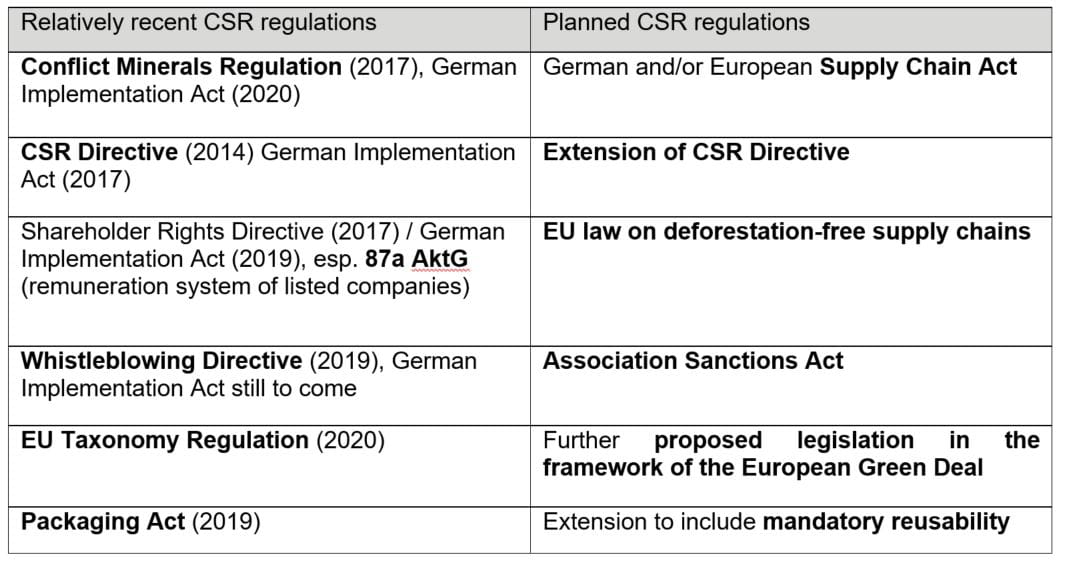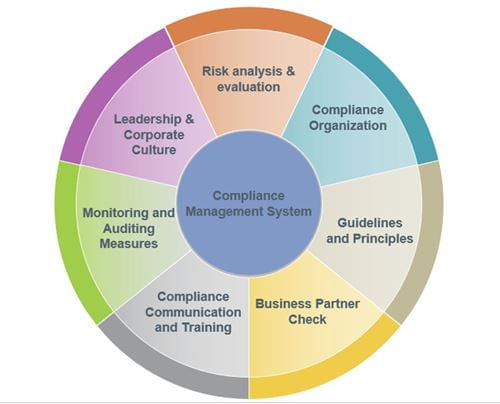
Interface
10 février 2021
Incentivised sustainability - CSR Goals in Employee Remuneration
2 de 10 Publications

Interface
10 février 2021
Sustainable Supply Chains – The Supply Chain Act and sustainable contract design
3 de 10 Publications

Interface
10 février 2021
Tracking sustainability - ESG as an integral part of good corporate governance in capital market-oriented companies?
4 de 10 Publications

Interface
10 février 2021
The market is turning green - what can competition law contribute to the implementation of the ‘Green New Deal’?
5 de 10 Publications

Interface
10 février 2021
ESG and Investments - Return on Sustainability
6 de 10 Publications

Interface
10 février 2021
Coffee with a shot of transparency - Data protection aspects when tracing manufacturing conditions
7 de 10 Publications

Interface
10 février 2021
Child of All Nations - The UN Treaty on Business and Human Rights
8 de 10 Publications

Interface
10 février 2021
The Responsible Ownership Company - the Alternative Form of Ownership
9 de 10 Publications

Interface
10 février 2021
More than Charity - The new awareness of Corporate Social Responsibility in law firms
10 de 10 Publications

Return to





